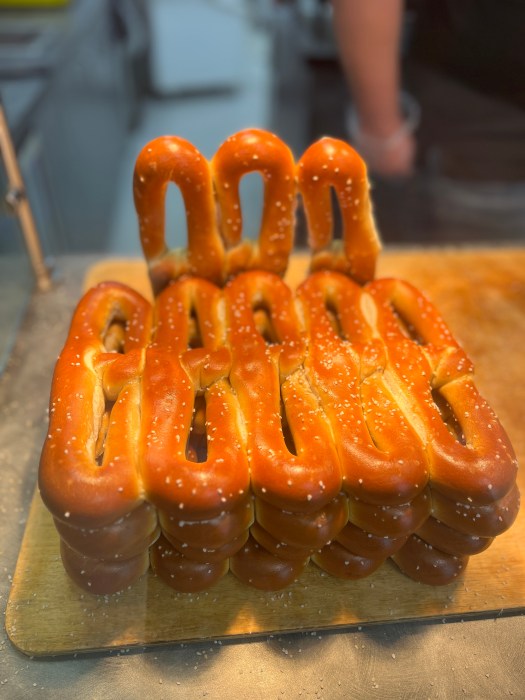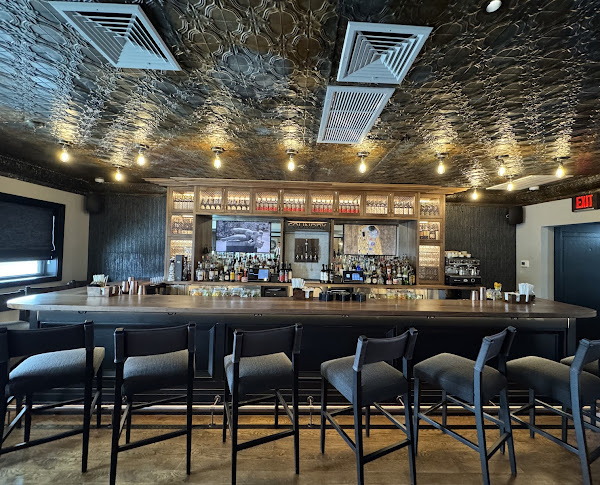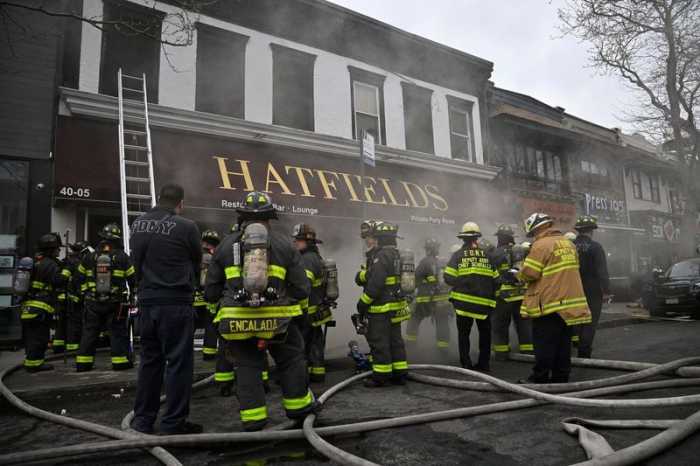The June 9 Belmont Stakes will be Chef Drew Revella’s fifteenth at Centerplate Inc., which coordinates the racetrack’s restaurants and catering. But this year he is racing to prepare for a bigger crowd than usual.
Even with that cushion of experience and his yearlong preparations now coming to a close, there’s no telling what challenges 90,000 hungry guests might bring on the day of the event.
“There’s a love of that chaos,” Revella says. “It’s not like every other job.”
The third and final leg of the American Triple Crown, the Belmont Stakes is the longest of them all at 1 1⁄2 miles. That, coupled with the fact that front-runner Justify, the horse that won both the Kentucky Derby and the Preakness in May, has the potential to become the thirteenth-ever Triple Crown winner, makes it likely that the crowd at Belmont Park’s Elmont arena will be full.
Triple Crown years have a markedly different feel, Revella says, adding that he is not generally a horse racing fan. He said it was incredible when, in 2015, he saw American Pharoah cross the finish line and win the Triple Crown.
“I had one manager who worked with me over 10 years, she was literally crying in my arms because it was such an emotional experience to be part of something that exciting,” Revella recalls. “When you’re down on the track and you feel the horses run by, there’s a feeling you get that — it’s very hard to put words to it — but people know it who watch it.”
Such moments are rare, though. Catering executives and employees rarely catch a glimpse of the events they work.
“I’ve been [at the Belmont Stakes] for two years — haven’t seen it,” says Robert DiChiaro, regional vice president of Centerplate Inc., the event’s caterer. “I’ve worked Super Bowls, World Series, Stanley Cups, Final Fours — very rare that I’ve seen anything.”
He shrugs it off and catches the highlights the next day.
Revella describes working the event as a “near-death experience.” In a similar fashion to the horses’ circuit, Revella moves in circles around more than a dozen satellite kitchen stations, making sure everything is going according to plan. Food preparation begins about nine days before the event, but the bulk of the work can be done only in the hours before race day to preserve freshness.
Revella, 47, of Staten Island, might clock in as early as 2 a.m. during those last few days of preparations, coordinating with hired vendors to execute the menu he crafted specially for this year’s 150th anniversary. His primary focus will be catering to a VIP echelon of guests (nearly 6,000) who have paid as much as $1,200 for a premium experience.
“We have a very New York-centric theme this year,” Revella says. “We’re taking some old subway signs and displaying food on that, and there’s pictures of Old World New York.”
Some of the new menu items this year include Brooklyn-cured GMO-free pastrami, hot dogs, sausages and an array of other charcuterie. Revella aimed to source food as locally as possible, tapping Brooklyn-based Gotham Greens, which produces urban rooftop-grown lettuces that Revella will hand pick ahead of the event.
Revella, who attended culinary school at Johnson & Wales University in Providence, R.I., says he started cooking at age 6, helping out with the family business — a catering hall. He says he was “bouncing around in the kitchen throwing ingredients in soup kettles.”
Now, as a regional executive chef for Centerplate, he says he channels that fun-loving creativity into how he leads his kitchen staff. In a high-stress role such as preparing for the Belmont Stakes, he urges his staff to stay calm.
“Never panic,” he tells them. “There’s always a solution. And don’t be afraid to ask for help.”
After thousands flood Belmont Park for the big day, Revella says he will likely “fall down,” but come 8 p.m. he’ll start tweaking his ideas for next year’s event. And June 10 is a regular racing day at Belmont Park, which means the Centerplate team has to be ready to go the next day.
“We still gotta open for another normal day on Sunday,” DiChiaro says. “It’s organized chaos.”
































